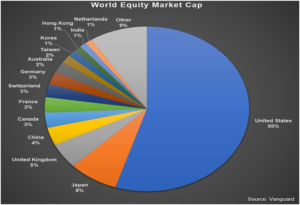5 Most Effective Blockchain Record-Keeping Solutions:
In today’s digital age, record-keeping has become an integral part of almost every industry. Conventional record-keeping solutions have been in use for decades, but in recent years, blockchain technology has emerged as a promising alternative. Blockchain solutions have the potential to revolutionize the way we store and manage data, and this article will explore what sets them apart from conventional record-keeping solutions.
Enhanced Security:
One of the key differences between blockchain solutions and conventional record-keeping solutions is the level of security they offer. Conventional record-keeping solutions are often centralized, meaning that they are vulnerable to cyber-attacks and data breaches.

On the other hand, blockchain solutions are decentralized, meaning that the data is stored across a network of computers. This makes it almost impossible for hackers to compromise the integrity of the data. Additionally, the use of encryption ensures that the data remains secure and private.
Transparency and Traceability:
Another advantage of block chain solutions is their transparency. Since blockchain is a distributed ledger technology, all parties involved in a transaction can view the same information, making it easier to detect and prevent fraudulent activity.
Additionally, since every transaction is recorded on the block chain, it is possible to trace the origin of a particular asset or product. This makes block chain particularly useful in supply chain management, where it can be used to track the movement of goods from production to delivery.
Immutable Records:
The immutability of blockchain records is another feature that sets them apart from conventional record-keeping solutions. Once a transaction is recorded on the block chain, it cannot be altered or deleted. This means that the data on the blockchain is permanent and cannot be tampered with.
This makes blockchain particularly useful in areas where data integrity is critical, such as financial transactions, medical records, and legal documents.
Blockchain cost and efficiency:
Blockchain solutions are also more cost-effective and efficient than conventional record-keeping solutions. Since blockchain is a decentralized technology, there is no need for a central authority to manage the data. This reduces administrative costs and eliminates the need for intermediaries, such as banks or lawyers.
Additionally, since the data is stored on a distributed ledger, it can be accessed instantly by all parties involved in a transaction, reducing the time and cost associated with traditional record-keeping processes.
Challenges and Limitations:
Despite the many advantages of block chain solutions, there are also challenges and limitations that need to be addressed. For example, the technology is still in its early stages and there is a lack of standardization and regulation.
Additionally, block chain is not a one-size-fits-all solution and may not be suitable for all applications. Finally, there are still concerns around the scalability of block chain and the ability to process large volumes of transactions.
Conclusion
Block chain solutions have the potential to transform the way we store and manage data. They offer enhanced security, transparency, and immutability, as well as cost-effectiveness and efficiency. However, the technology is still in its early stages, and there are challenges and limitations that need to be addressed. As the technology continues to evolve, it is likely that we will see more widespread adoption of block chain solutions in a range of industries.
